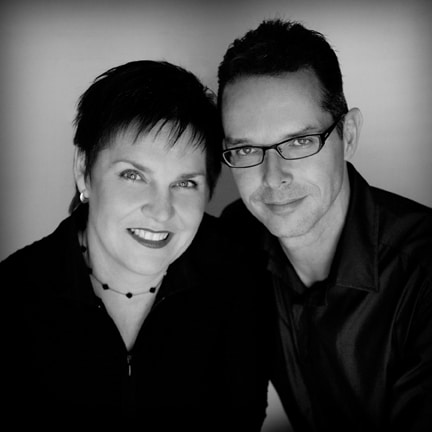
-
Audio of the article “The DKM Paradigm” by Bronwen Stiene
Download
DKM is the pseudonym for the symbol and mantra utilised at the level of Reiki Teacher.
As Reiki Teachers we are taught this symbol and its mantra, but do we behave according to the DKM paradigm?
DKM in Japan represents void, emptiness, enlightenment or non-duality. It depends upon the tradition you belong to, as to which term you work with.
Using one of these terms, non-duality, we will delve into the meaning of DKM. Within non-duality there is no distinction between us and others, in universal terms it means that the universe is us and we are the universe.
To be a Reiki Teacher equals being DKM.
**********
In an effort to explain attunements[[Attunements have developed from the Japanese practice of reiju and are taught under this name in modern forms of the system of Reiki. Attunements use Reiki symbols and mantras while reiju does not and is seen as a spiritual blessing.]] (an element of the system of Reiki), a Reiki teacher may claim that she gives something to a student or alters something in the student for the practice to be effective. She may even state that without an attunement the student will be unable to practice the system of Reiki with the Reiki teacher also being the only person capable of passing on Reiki.
If we look closer at these oft repeated statements we can see that they lack correlation with the DKM paradigm of non-duality.
Within non-duality a Reiki teacher makes no claim of doing things to a student. As soon as we state that we give something special to the student or that we attune someone, we are removed from that non-dual space.
The space of non-duality is the space of Oneness; there is no teacher, no student and nothing to give. At the deepest level there is nobody to attune. As soon as we think we give something or do something to the student we become attached to the gift, or the doing, and expect an outcome.
This attachment to the attunement’s outcome has been a major reason for the growing physicality and complexity over time of the attunement process.
As more physical actions are included into the attunement process, the student’s sensations become superficially enhanced. For example, physical actions like the pressure of a teacher’s hand or thumb can leave the student with a lingering physical sensation or a teacher’s accented breath may tickle against the student’s skin offering mystical possibilities. These types of physical acts generally prompt the student to respond positively to the attunement, believing that the teacher has completed something meaningful and, perhaps even, magical.
In turn, such positive affirmations created by an excess of physical actions encourage the teacher to believe that her attunement has “really worked”, supporting the teacher in this same cycle of manufactured meaning. If the student, however, does not respond in the expected fashion then the teacher feels disappointed with her own performance and ability.
Within non-duality a teacher is not interested in the outcome, it is just the way it is; neither good nor bad. In this space there is also no need for protection – for ourselves, during treatments or attunements. There is also no need for the Reiki symbols or mantras once a certain point in a Reiki practice is attained – which is possibly why the reiju works without them. If we reside within DKM then symbols have no use, as we already ARE the symbol and all that we must DO is BE.
How a teacher sees herself is also reflected by her level of experience. Self-appointed titles of master and grandmaster are superfluous in the state of DKM. To quote Yukiyoshi Takamura (1928-2000): Anyone who refers to himself as a ‘master’, isn’t.
To find out more about the thoughts behind the system of Reiki in relation to non-duality and DKM we can dissect some of the information we have about Usui Mikao[[Founder of the system of Reiki.]], his teachings and his students. During reiju[[Reiju is a spiritual blessing and is the precursor to the attunement.]] Usui sensei would simply sit opposite the student, being a vessel for the universal energy to flow through. The student would then take from that what she needed at the time. Usui sensei appeared to exist without any attachment to the process and worked within a space of Oneness.
Out of Usui sensei’s 2000 students only 20 were practicing in Shinpiden[[Reiki teacher level]]. when Usui sensei passed on. This indicates that there was a length of time required before completing the teachings and that, therefore, there was most likely a level of difficulty attached to the practice. It is believed that in Usui sensei’s time recognition as a teacher was given only once the teacher became DKM. How many of his students actually completed Shinpiden is still an unanswered question today.
Delving into the profoundest understanding of working within the system of Reiki, it could be said that all that is required of the practitioner is to be an empty vessel to let the universal energy flow through. The more thoughts and attachments we have, the more we fill our empty vessel with rubbish and the less universal energy will flow through us.
Being an empty vessel is not achieved in a weekend or even a year – it is a life-long practice. Are Reiki practitioners willing to take this life journey? It is one that entails self-responsibility and working solidly with the tools that Usui sensei pieced together for us.
To consciously embark on this life practice a Reiki practitioner, initially, needs to intellectually understand the concept of DKM. This process needs to be supported by a qualified teacher who can guide the practitioner intellectually. After intellectualizing DKM, the practitioner must then gain an initial experience of being that empty vessel, via traditional Reiki practices. Once these two processes have been worked through they can be integrated into one’s practice and life. Finally, a space is reached where life and meditation are not separate; where we are the universe and the universe is us, or, in other words, that we come to abide by our true nature, DKM.
Bronwen and Frans Stiene are the co-founders of the International House of Reiki and co-authors of The Reiki Sourcebook, The Japanese Art of Reiki, Your Reiki Treatment, The A-Z of Reiki Pocketbook and the Reiki Techniques Card Deck. Bronwen and Frans teach in the USA, Europe and Australia. Visit the Courses page to find a course near you.

